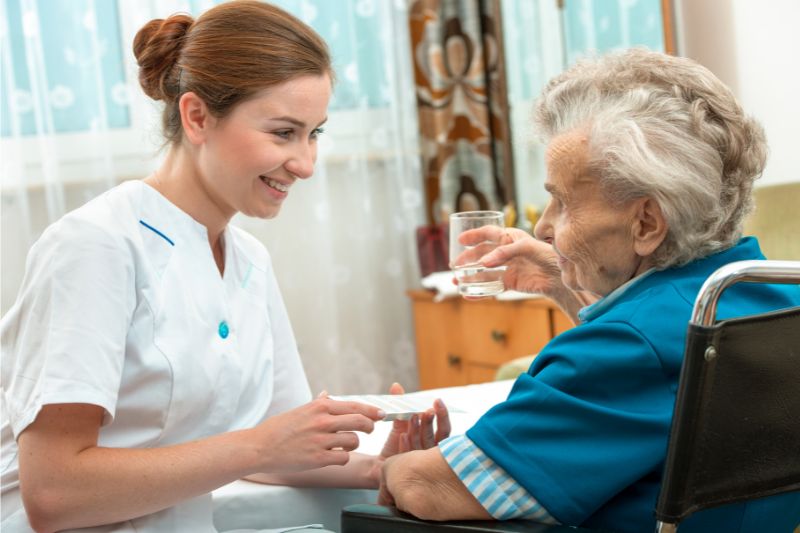No products in the cart.
Medication-Assisted Treatment: 5 Key Takeaways

In the battle against the pervasive and devastating effects of substance use disorders, Medication-Assisted Treatment (MAT) has emerged as a beacon of hope. That’s why leading rehab centers, like Turning Tides Treatment Center, embrace MAT as a frontline approach, using medications and therapy to help people overcome addiction.
Medication-Assisted Treatment (MAT) is a successful approach to treating substance use disorders, combining behavioral therapy and FDA-approved medications to improve outcomes for individuals struggling with addiction.
MAT promises to heal, restore, and redefine lives, offering hope to individuals ensnared by the clutches of addiction. Here are five key takeaways to understand its importance and impact:
1. Combination of Medication and Behavioral Therapy
MAT combines medications approved by the Food and Drug Administration (FDA) with behavioral therapies and counseling to treat substance use disorders effectively.
It also uses behavioral therapy to address the psychological and behavioral aspects of addiction. This component involves various therapeutic approaches, such as cognitive-behavioral therapy (CBT), contingency management, motivational interviewing, etc.
Through behavioral therapy, individuals learn coping skills, explore triggers for substance use, identify maladaptive thought patterns, and develop healthier behaviors and coping mechanisms.
2. Effective for Opioid and Alcohol Use Disorders
At the Turning Tides Treatment Center, Medication-Assisted Treatment (MAT) offers a powerful solution that not only significantly reduces the risk of fatal overdoses and mortality linked to opioid and alcohol use disorders but also provides a vital lifeline for individuals on their recovery journey.
By utilizing FDA-approved medications, MAT stabilizes brain chemistry, curbs cravings, and prevents relapse, paving the way for a safer, healthier, and more promising future beyond addiction’s grasp.
3. Improves Retention in Treatment
Improving retention in treatment is a critical aspect of Medication-Assisted Treatment (MAT), as it directly impacts the success of an individual’s journey toward recovery. One persistent challenge in addiction treatment is the high rate of dropout, often attributed to the grueling and overwhelming nature of overcoming substance use disorders.
However, MAT has effectively addressed this issue by significantly increasing the likelihood that individuals will stay committed to the treatment process for an extended period.
4. Addresses the stigma surrounding addiction
Often rooted in misconceptions and judgments, stigma creates barriers that hinder individuals from seeking help and support for their substance use disorders. MAT dismantles these barriers by reframing addiction as a treatable medical condition rather than a moral failing or lack of willpower, fostering a more compassionate and understanding approach to addiction and recovery.
5. Comprehensive and Holistic Approach
The Turning Tides Treatment Center takes pride in offering a comprehensive and holistic approach to Medication-Assisted Treatment. This approach integrates medical interventions, behavioral therapy, counseling, and support services to cater to each individual’s unique needs.
By addressing the physical, psychological, and social aspects of addiction, the center ensures that patients receive well-rounded care, increasing the likelihood of successful and sustained recovery.
Conclusion
Medication-Assisted Treatment (MAT) emerges as a transformative force in addiction treatment. Its integration of pharmacological medications and behavioral therapy offers a comprehensive approach to addressing the complexities of opioid and alcohol use disorders.
By combining medication and behavioral therapy, reducing overdose risks, improving retention in treatment, and challenging stigma, MAT paves the way for sustained recovery and a brighter future for individuals seeking healing from addiction.















Leave a Reply